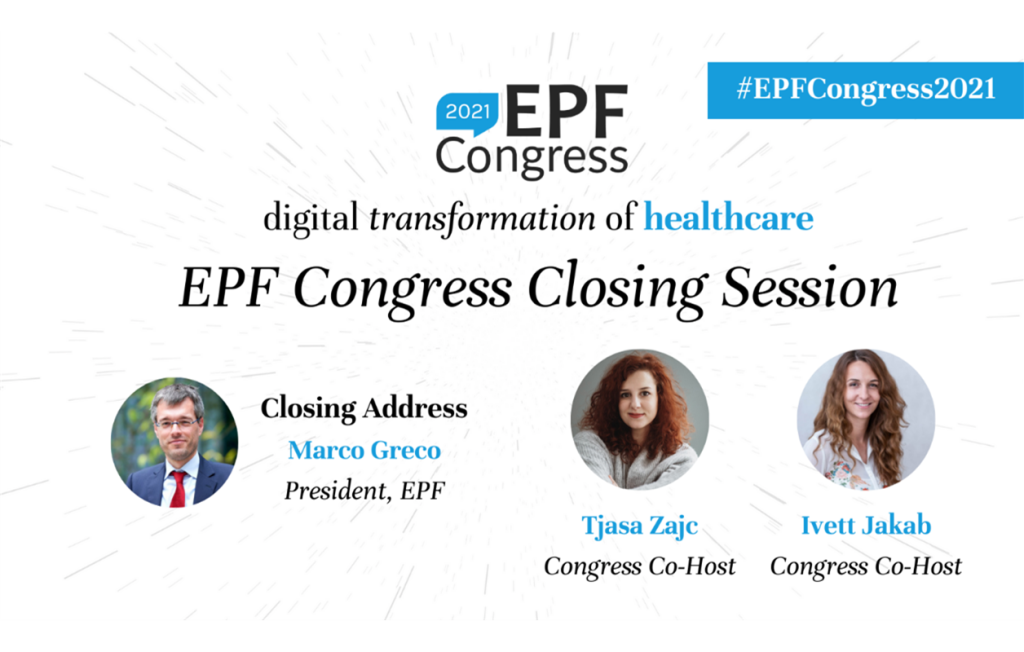EPF (European Patient Forum) held an online congress over 4 days, 26-29 October.
This was an extensive and excellent Congress given on a platform called Swapcard, with many possibilities to participate actively. Here we give a brief insight of some of the topics and discussions.
In the opening session, “The digitalisation of health and care systems in light of COVID-19: what way forward and which role for patients”, Dr Hans Kluge WHO Europe, warned of the risk of repeating the mistakes that led to past failure of digital transformation initiatives. He highlighted how the experience of Covid-19 could be seen as a wake-up call to put patients at the centre of innovation in development and use of digital technologies and also increase equitable access to the results.
Other sessions were
“Patients’ health data sharing: perspectives, risks and key concepts” with discussions on the current state of data protection, the implementation challenges around GDPR and the potential impact on patients’ lives. It was emphasized that while the industry has a legal and policy framework in place, it lacks the supporting policies and practical guidance required to educate stakeholders about using health data effectively while protecting patient privacy.
“Our health in our hands: the role of mobile health to improve patients’ control of their healthcare” a discussion on the role of mobile health and digital therapeutics in improving patients’ control of their own healthcare. It was highlighted that there are great Apps that can directly influence patient outcomes in areas such as cancer and that the planned standardization of apps using four key elements should help build patient confidence and use.
“Patients and healthcare professionals: a partnership for and through digital health” Annabel Seebohm shared elements of the Consensus Framework on the Digital Transformation of Healthcare. She outlined the four key recommendations, focusing on upholding trust, patient confidentiality, protecting patients’ rights and limiting commercial influence.
“Improving medicine innovation through better use of health data: Big Data and real world evidence” with discussions on how real-word data and big data can improve medicine innovation this data could lead to delivering better and safer treatments for patients, possibly at a faster rate and lower price, and in a more equitable way and it was highlighted how the regulatory challenges we see in randomised clinical trials provide the opportunities for real-world data, for example, in the identification of unmet needs, or increasing the quantity of available data on adverse events, as seen in the real-world example of vaccine safety with Covid-19.
“Artificial Intelligence in Healthcare”
This session was focused on the challenges and opportunities of AI in health, particularly in improving patient understanding and engagement and how it fits in the current regulatory framework.
“The road to patient empowerment – Data and Digital Health Literacy” a discussion on the growing movement of digital health data literacy, highlighting that an increase in literacy can empower patients and bring improved healthcare services.
“Safer digital health: how to ensure it at the European level” In a special session looking at the safety of commercialized products and the role regulatory bodies have, where among other points it was outlined the enormous growth of medical technology of the last few years, and how a circular process that covers different steps within the entire product lifecycle is needed to generate evidence in support of commercialization.


